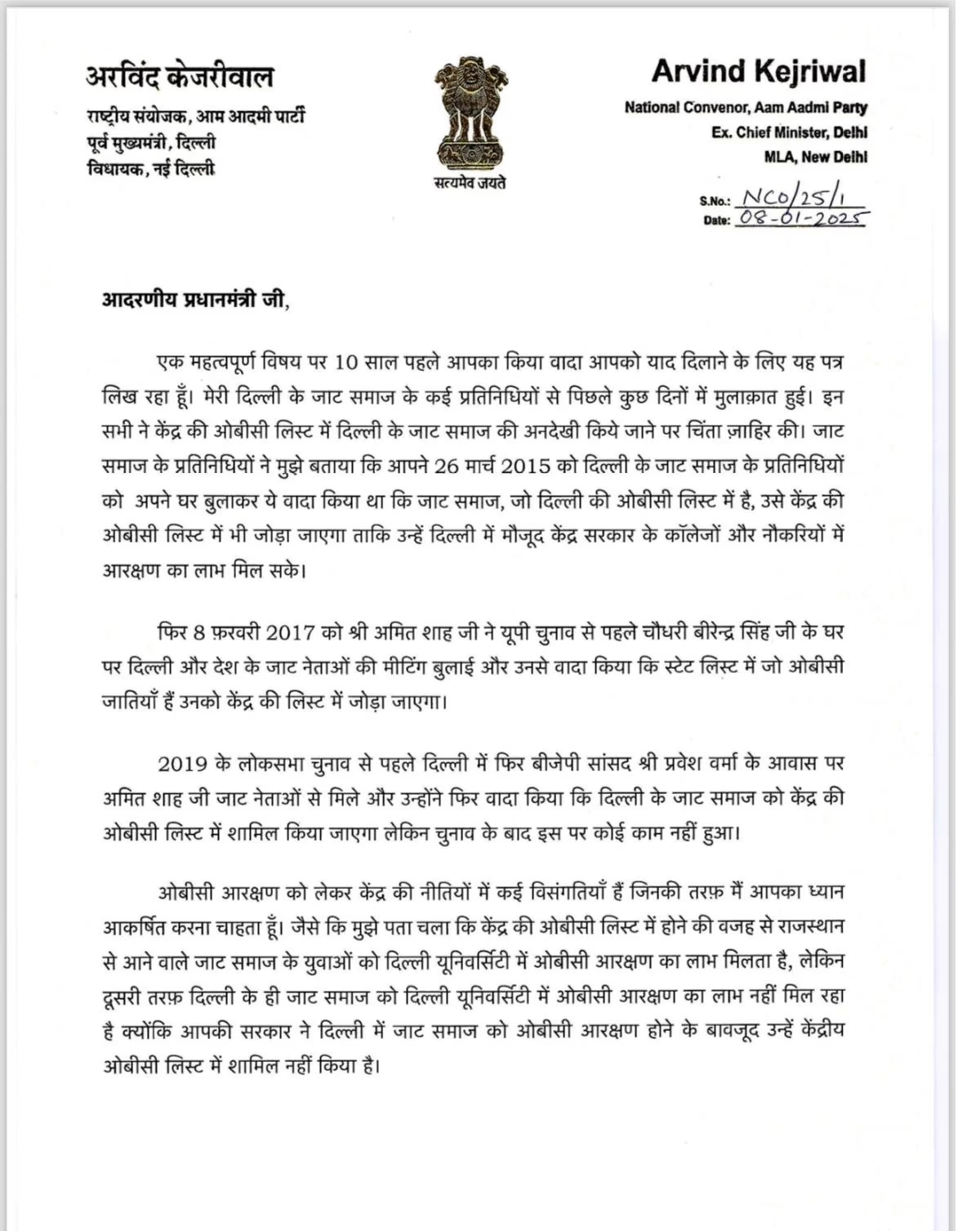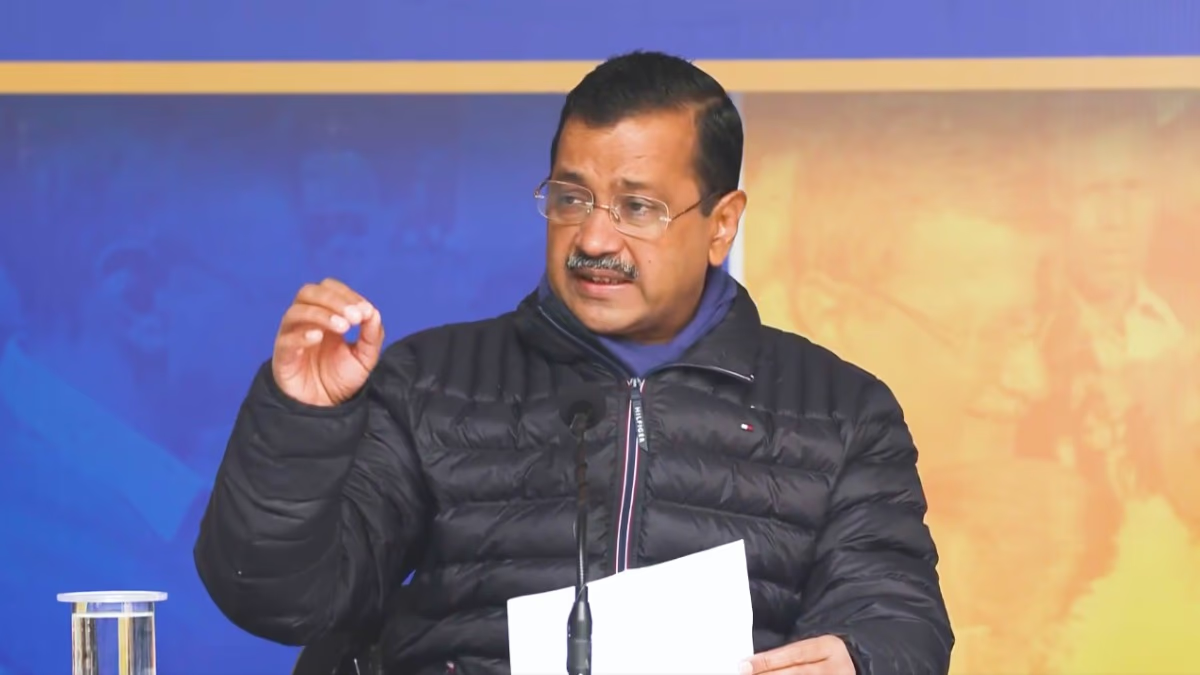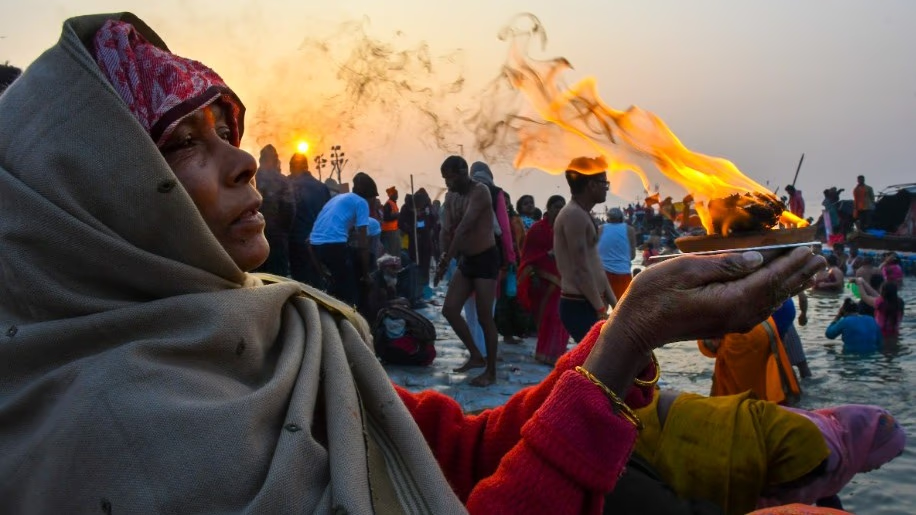Arvind Kejriwal, the head of the Aam Aadmi Party and former Chief Minister of Delhi, ignited a debate on Thursday by raising the issue of reservation for Delhi's Jat community. Kejriwal accused the Bharatiya Janata Party (BJP) of deceiving the Delhi Jats for the past decade. In a letter to the Prime Minister, he highlighted dates when the BJP promised reservation for Delhi's Jat community.
Kejriwal claimed that Delhi's Jats are denied reservation in any of the central government's colleges, universities, or institutions. He alleged that Prime Minister Narendra Modi and Home Minister Amit Shah remember Delhi's Jats only before elections. While the Jat community in Rajasthan enjoys reservation within Delhi, the local Jat community is left out. Delhi's state OBC list includes five castes not recognized in the central OBC list.
It might appear that Kejriwal has made a decisive move for the Aam Aadmi Party's victory in the Delhi assembly elections by supporting Jat reservations, but reality holds a different narrative.
Jat Reservations in Haryana Failed to Benefit Congress
The Jat reservation movement in Haryana was active, unlike in Delhi. The former Bhupinder Singh Hooda government in Haryana, under the Congress, gave reservation to Jats and similar communities in 2012 under the Special Backward Class with the UPA government extending it to nine states in 2014. However, the Supreme Court negated these orders, branding Jats as 'non-backward.' A similar notification by the Khattar government was retracted in 2015 after the Punjab and Haryana High Court's order.
The Hooda government's attempt at granting reservations backfired, polarizing Jat votes and redirecting other castes' votes towards the BJP, securing its third consecutive term in Haryana. A similar situation can arise in Delhi, although the Jat community is not as numerous as in Haryana.

Source: aajtak
Supporting Jat Reservation in Delhi Might Upset Other Communities
Estimates indicate around 8-10% of Delhi's population comprises Jats, influencing eight assembly seats significantly, including Nangloi, Mundka, Najafgarh, Bijwasan, and Kirari. The Aam Aadmi Party has fielded candidates from the Jat community in these seats, hoping to consolidate the Jat vote. However, BJP's strategic move by fielding Parvesh Verma against Kejriwal has given the Jat community hope, hinting at potential leadership if Verma wins.
In Delhi, despite being half the Jat population, the Gujjar community holds significant sway. They dominate several seats and their votes are crucial in areas like Badarpur, Tughlakabad, and Sangam Vihar. A realignment of Jat votes towards the Aam Aadmi Party might push Gujjars and other OBCs towards the BJP.
Jat Reservation Issue Resurfaces after 12 Years: Questions Arise
The biggest challenge for the Aam Aadmi Party is its credibility. Despite Kejriwal and Sisodia's arrests, the BJP couldn't leverage corruption as a significant issue. Kejriwal, known for his distinctive political stance, faces criticism for allegedly opportunistic moves. The Jat reservation demand sparked questions on its reappearance during election times, especially when Kejriwal had ample time over his tenure as Chief Minister to address it. The common Jat questions why this issue wasn't highlighted earlier.




